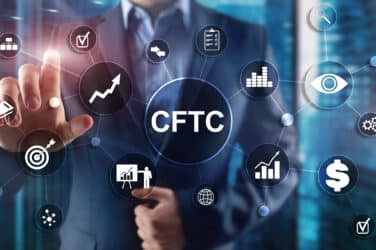
The Commodity Futures Trading Commission (CFTC) may have finalized its definitions of key terms under the Dodd-Frank Act, but the ripple effects from that order are anything but final.
Paradoxically, the final rulemaking on definitions has seemed to muddy the waters by setting in motion a chain reaction of implementations of rules that were dependent on these definitions.
“From our point of view, and also our clients, the most difficult element is the short time frame—just 60 days to implement in some cases,” said David Dixon, product manager at Misys, a provider of OTC derivatives software.
“Much of what they need is available today, however to implement and to test takes time,” said Dixon. “Firms also have to install changes on their existing implementation.”
Once the final rule is published in the U.S. Federal Register—which is anticipated within the next few weeks—the 60-day countdown to CFTC registration begins for commodity pool operators (CPOs). This could result in the registration deadline being as early as September 30.
In April, the CFTC rescinded Rule 4.13(a)(4) of the Commodity Exchange Act, under which CPOs were exempt from registration if all investors in the CPO’s fund are “qualified eligible persons”, or sophisticated investors.
Funds that relied upon the 4.13(a)(4) exemption have until December 31 to decide whether to register with the CFTC.
That decision, in turn, is dependent on the swaps definition rule, which will become effective 60 days after the final rule is printed in the Federal Register.
In a separate ruling, the CFTC approved the final definitions of the so called “end-user” exception, which provides that the clearing requirements under Dodd-Frank shall not apply to a swap if one of the counterparties to the swap is not a financial entity, is issuing swaps to hedge or mitigate commercial risk, and notifies the CFTC how it meets its financial obligations associated with entering into non-cleared swaps.
“While generally applauded by those swap participants that may seek the exception, which exempts them from submitting swaps for central clearing, these participants may be surprised to learn that the additional burdens of noticing, documenting and reporting may be more burdensome than beneficial,” said Alun Green, general manager of Stream GMI at SunGard’s capital markets business, a trading technology firm.
Firms that are impacted by the swaps provisions of Dodd-Frank now find themselves in the position of having to develop compliance programs to meet final rules that have yet to be promulgated.
“Solutions have to be tactical with the strategic solutions to follow later,” Dixon at Misys said.
For example trade reporting will be effective in September, but firms will have to employ legal entity identifiers, the definitions of which will not be available until the end of the year.
“There are elements of Dodd-Frank to come that will affect areas of the solution already implemented,” said Dixon. “This gives further pressure and complication.”
There are also extraterritorial implications, in particular whether the definitions will apply to overseas operations of U.S.-based institutors.
“This announcement only concerns Dodd-Frank and the U.S. market, so we need to be prepared to handle similar regulations in other geographies,” said Dixon. “We continue to see little interest from large clients in Asia and the regulations there are well behind the other markets. The question is whether business will move to Asia as a consequence and perhaps new instrument types will evolve as a result of these new regulations.”




